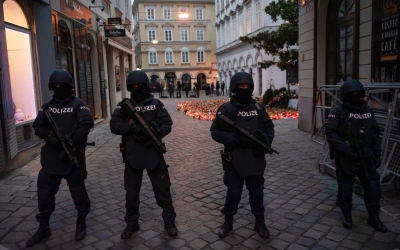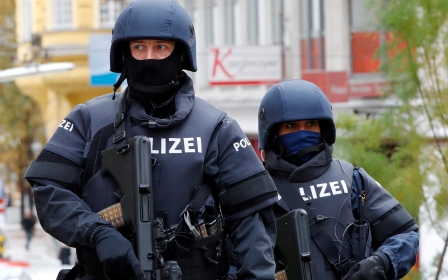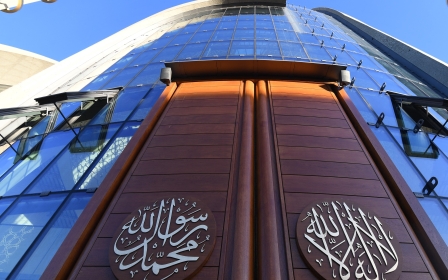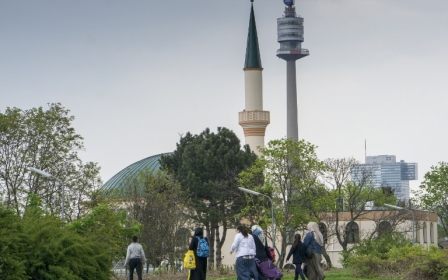How Austria is dismantling civil liberties under the guise of 'anti-terrorism'
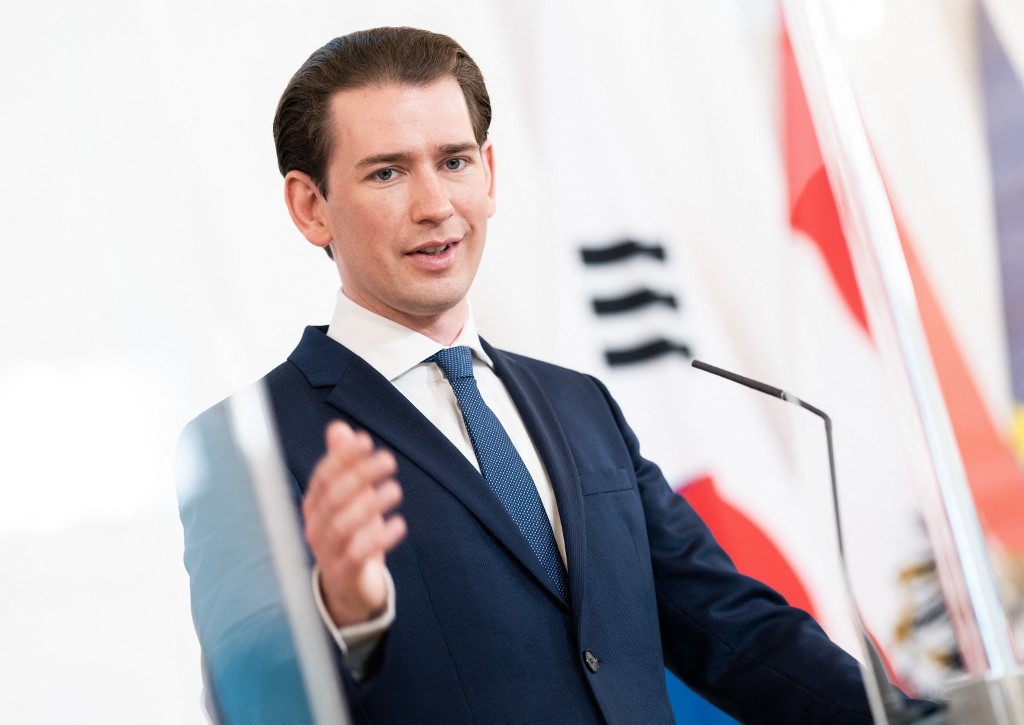
Just days after the deadly attack in downtown Vienna on 2 November 2020, the Austrian cabinet agreed to broad new anti-terrorism measures. According to Chancellor Sebastian Kurz of the Conservative Austrian People’s Party (OVP), the measures were meant to target militants, in addition to the ideology that drives them - in other words, non-militant Islamists.
Kurz made international headlines when he proclaimed that he wanted to create a “criminal offence called ‘political Islam’ in order to be able to move against those who aren’t terrorists but are preparing the ground for it”. But amid objections from the party’s coalition partner, the Greens, the bill dropped the term “political Islam” and replaced it with the still quite contentious “religiously motivated extremism”.
The goal, first and foremost, is apparently to target Muslim civil society
Still, Austria’s integration minister made clear that the bill would target mainly so-called political Islam.
When the “Anti-Terrorism Act” was first presented late last year, several institutions heavily criticised the bill. The European Center for Not-for-Profit Law argued that “the draft law is not in line with international and European human rights standards on freedom of religion, freedom of expression and freedom of association”. Amnesty International released a comprehensive critique, while lawyers, religious communities and NGOs uttered harsh condemnations - but with little impact. The law ultimately passed earlier this month.
Amended legislation
New MEE newsletter: Jerusalem Dispatch
Sign up to get the latest insights and analysis on Israel-Palestine, alongside Turkey Unpacked and other MEE newsletters
Austria’s “anti-terrorism” package includes several acts that have been amended: the Symbol Act, originally issued in 2014, bans logos of militant groups, such as al-Qaeda and the Islamic State. It was later amended to include non-militant groups, such as the Muslim Brotherhood, and now the scope has been further widened to include the symbols of Hezbollah and Hizb-ut-Tahrir. The Citizenship Act has been amended to allow people involved in “terrorism” to be stripped of their citizenship if they possess more than one.
The newly amended Islam Act will also allow state authorities to dissolve Islamic institutions based on the “protection of public safety, public order, health and morals or protection of the rights and freedoms of others”.
While any act concerning a church or religious community is traditionally amended in consent with the respective church or religious community, that did not happen in this case, for the first time in decades. Austria has also moved to compel the Islamic religious community to issue a list of all its functionaries, the so-called imam registry.
In sum, Austria’s so-called anti-terrorism package severely curtails civil liberties, putting at risk the freedoms of religion, expression and association.
The goal, first and foremost, is apparently to target Muslim civil society. This is suggested by the governing OVP and the legislation it has put forward on “political Islam” or “terrorism”. But there is no reason to doubt that tomorrow, this legislation could also be used against any critical opposition to the established order.
Dismantling democratic values
Most concerning of all, the latest anti-terrorism measures were not opposed by the leftist and liberal political camp. To the contrary, the Social Democratic Party and the New Austria and Liberal Forum supported them in a parliamentary vote and only criticised the implementation of more stringent post-release monitoring of those convicted of terrorism offences. Only the far-right Freedom Party of Austria did not support the amended legislation, arguing that several restrictions would not go far enough.
The party has managed to leverage this topic to cement its own power, while in the process, further marginalising Muslims
While the OVP is steadily introducing more laws to reduce civil liberties and allow further encroachment by state authorities, the supposedly liberal and leftist opposition largely applauds this dismantling of democratic values.
The opposition parties have justified their support by saying that while the new amendments were discriminatory, there was a particular problem with Muslims that did not exist with any other religious denomination, thus supporting a so-called “defensive democracy”.
Ultimately, the recent vote proved how successful the OVP’s discourse has been on “political Islam” as the biggest threat facing Austria. The party has managed to leverage this topic to cement its own power, while in the process, further marginalising Muslims - and potentially every type of political opposition.
The views expressed in this article belong to the author and do not necessarily reflect the editorial policy of Middle East Eye.
Middle East Eye delivers independent and unrivalled coverage and analysis of the Middle East, North Africa and beyond. To learn more about republishing this content and the associated fees, please fill out this form. More about MEE can be found here.



